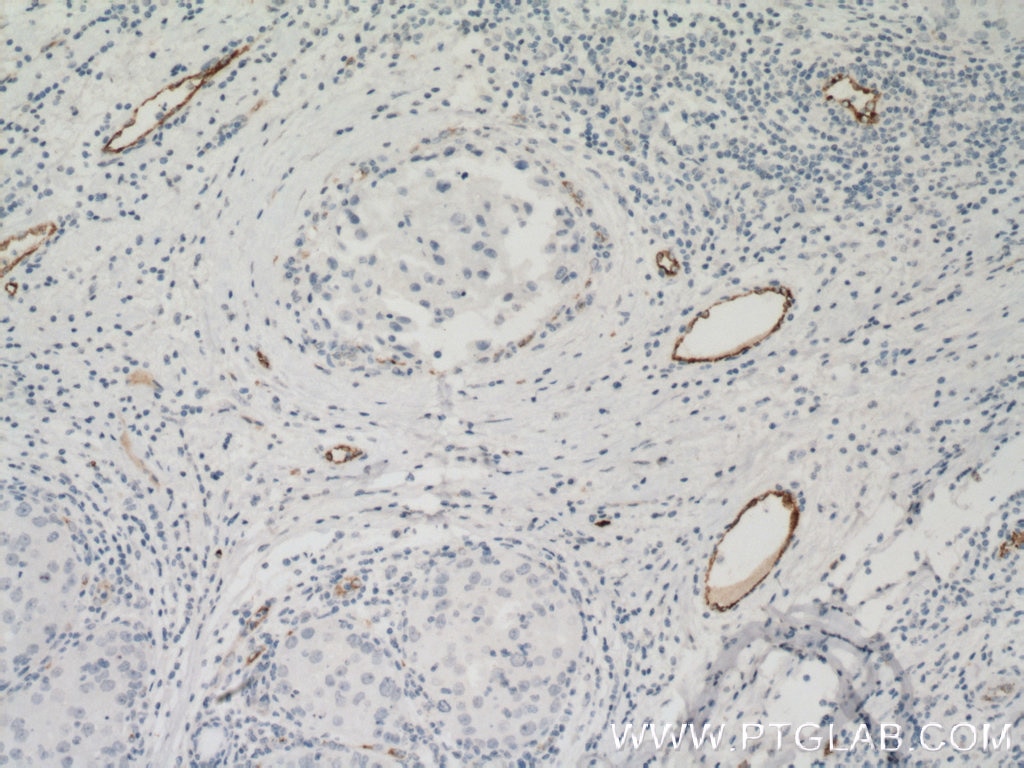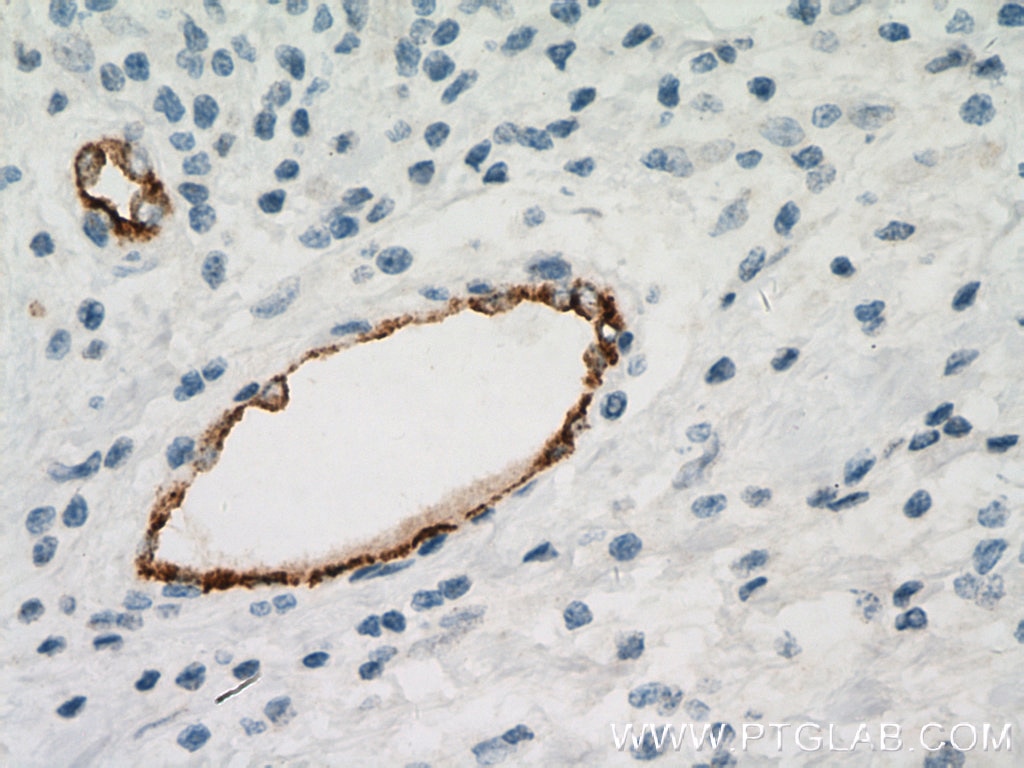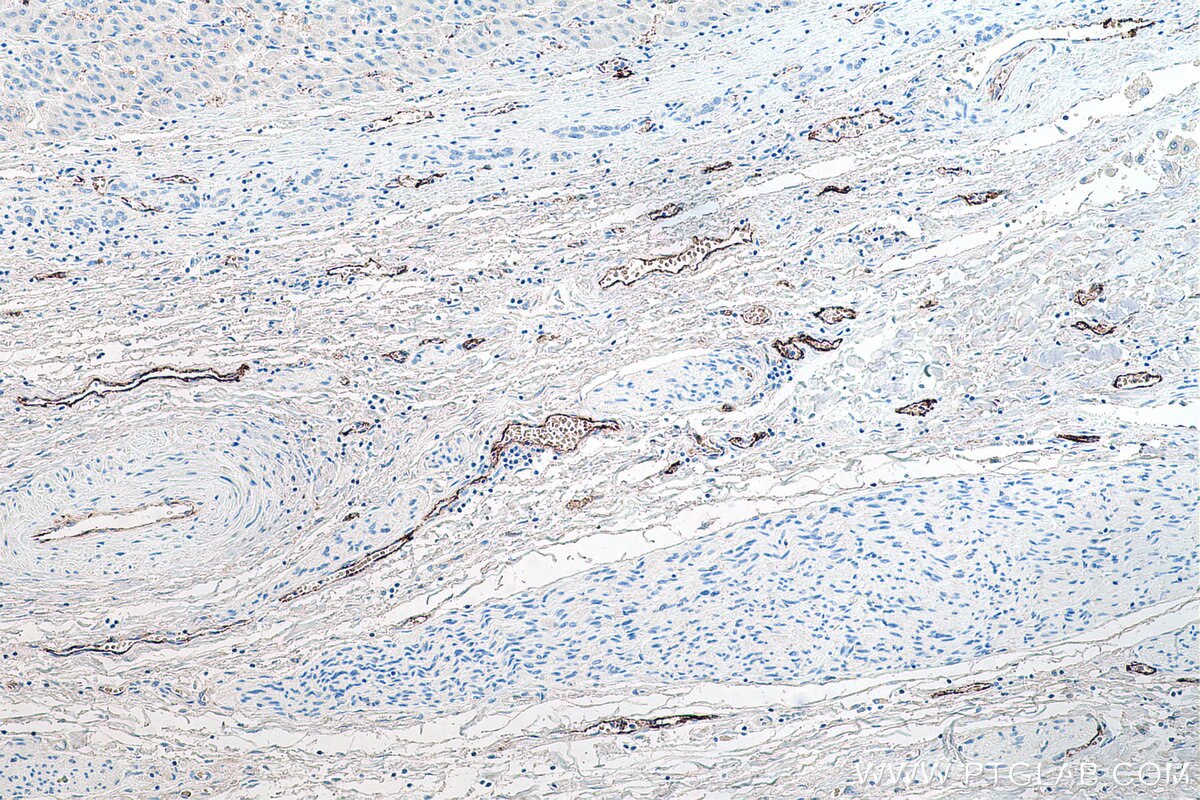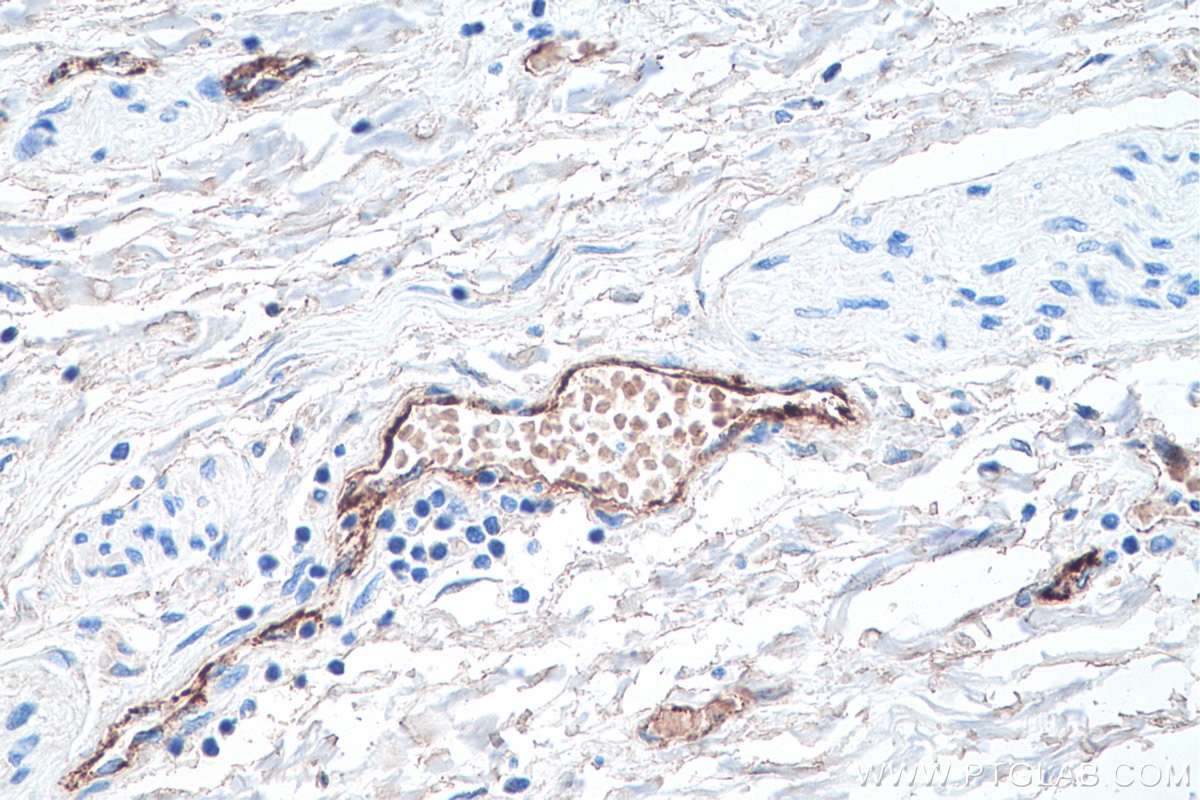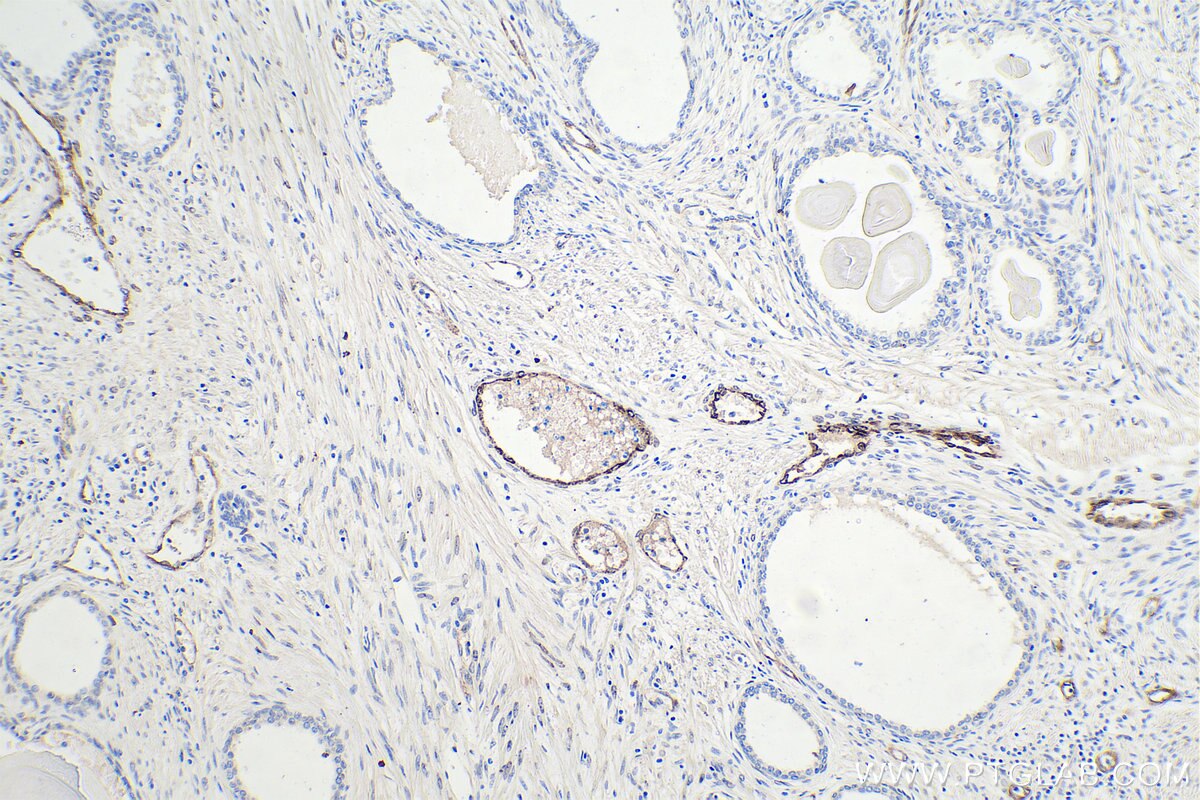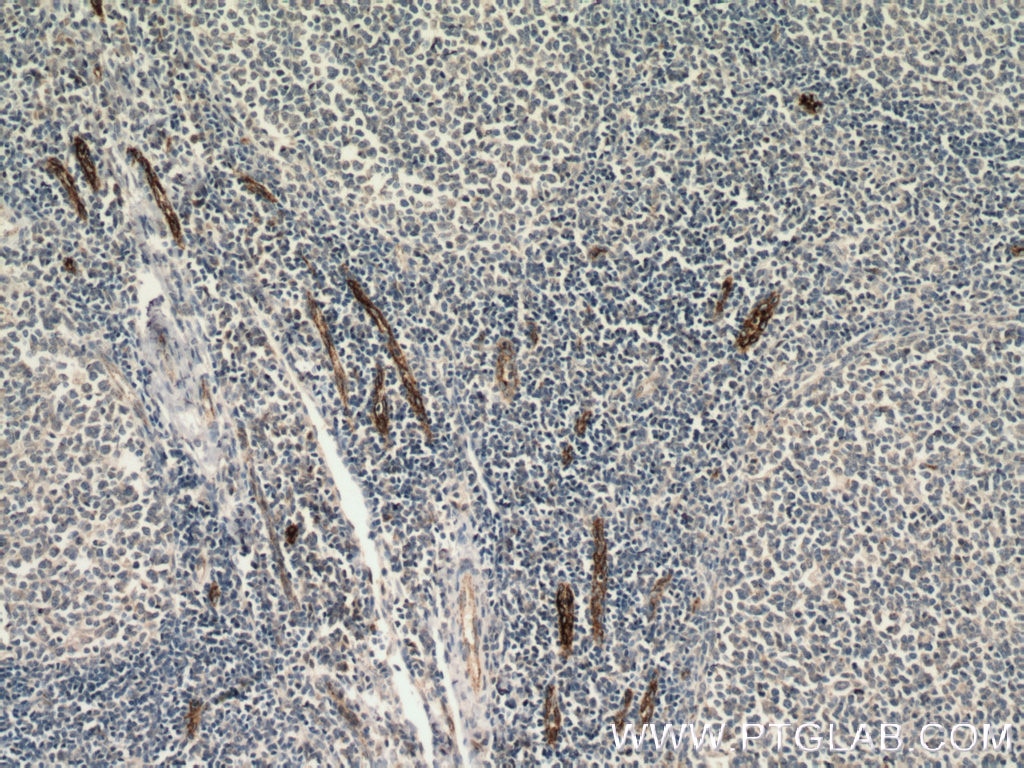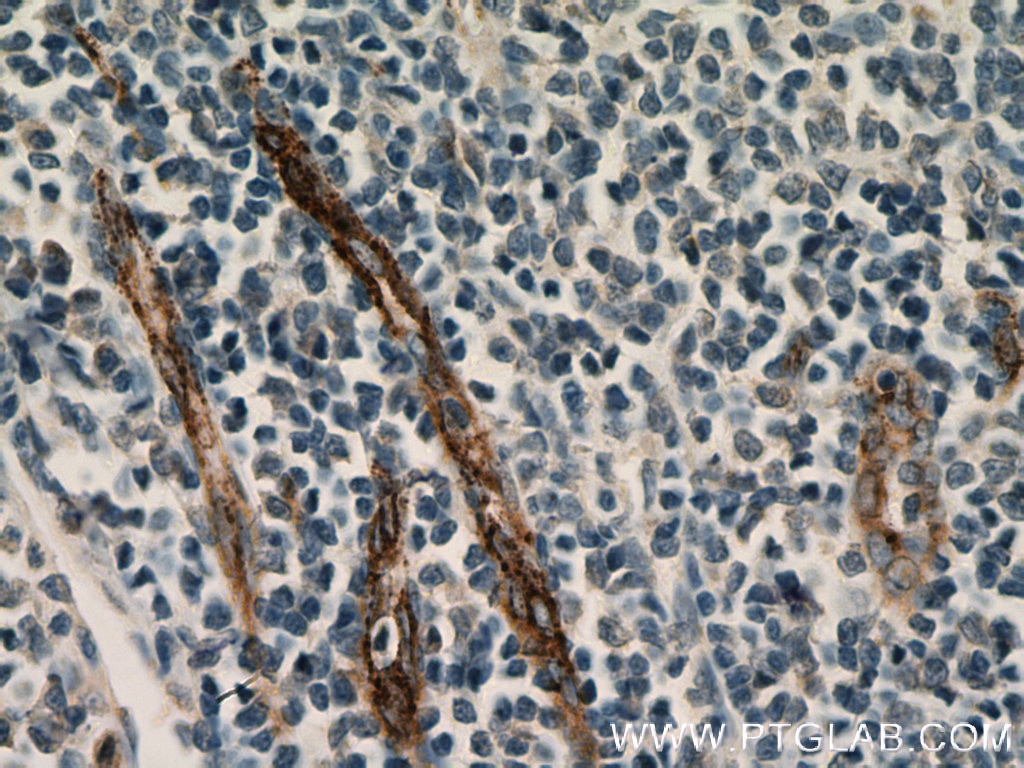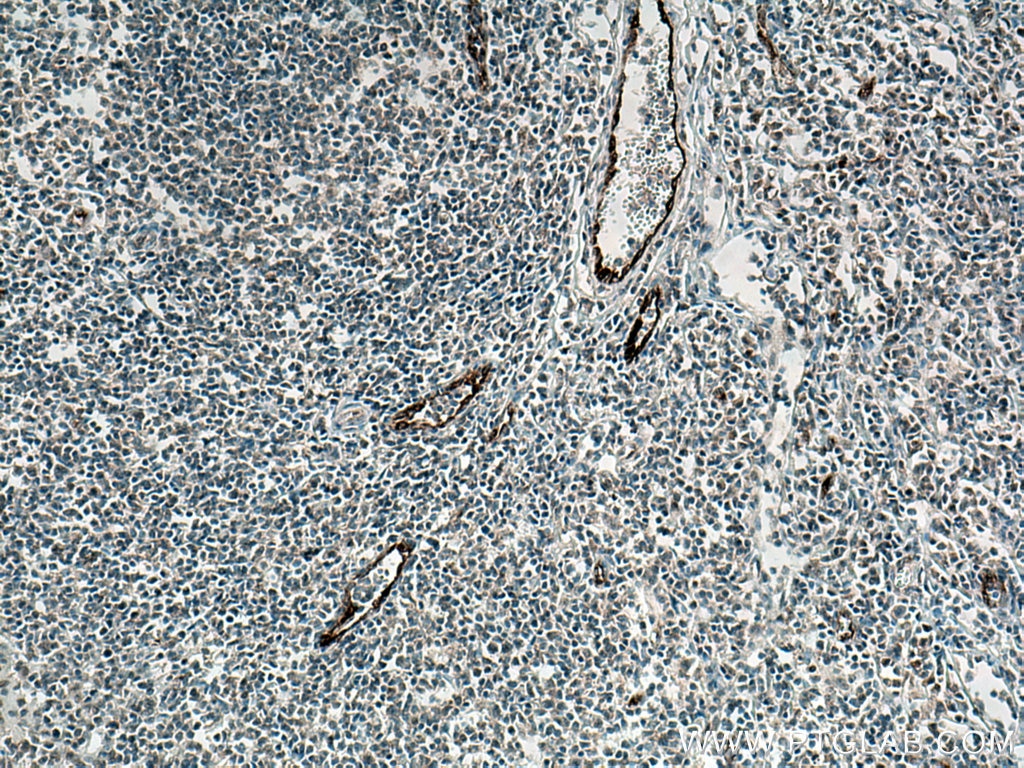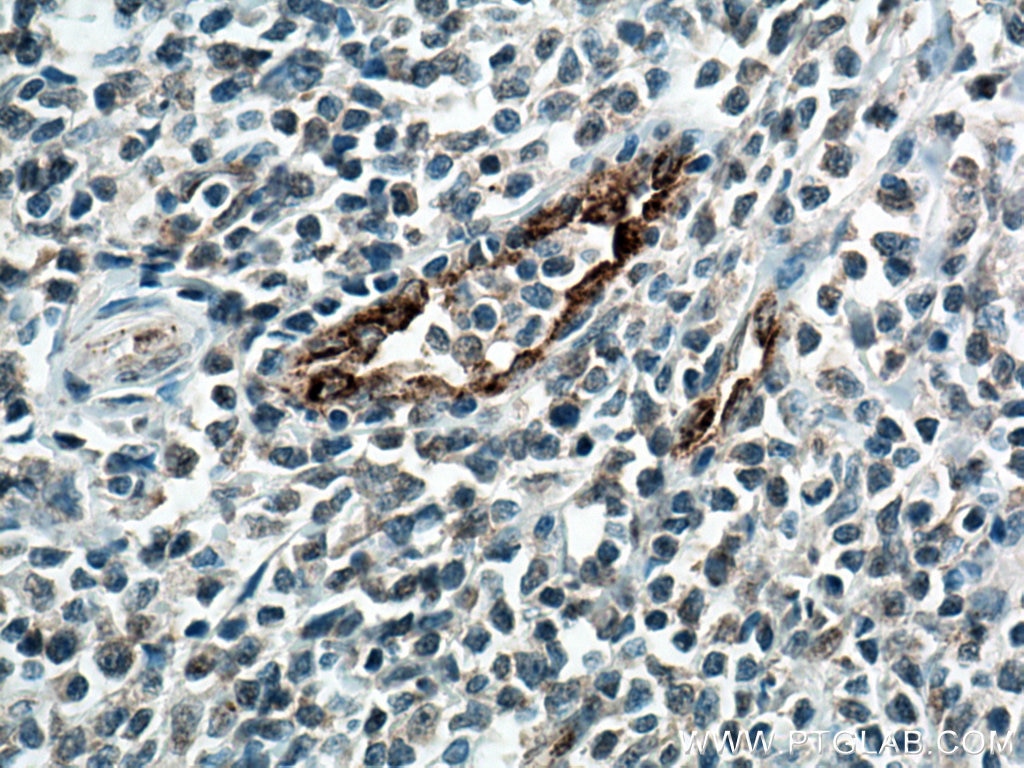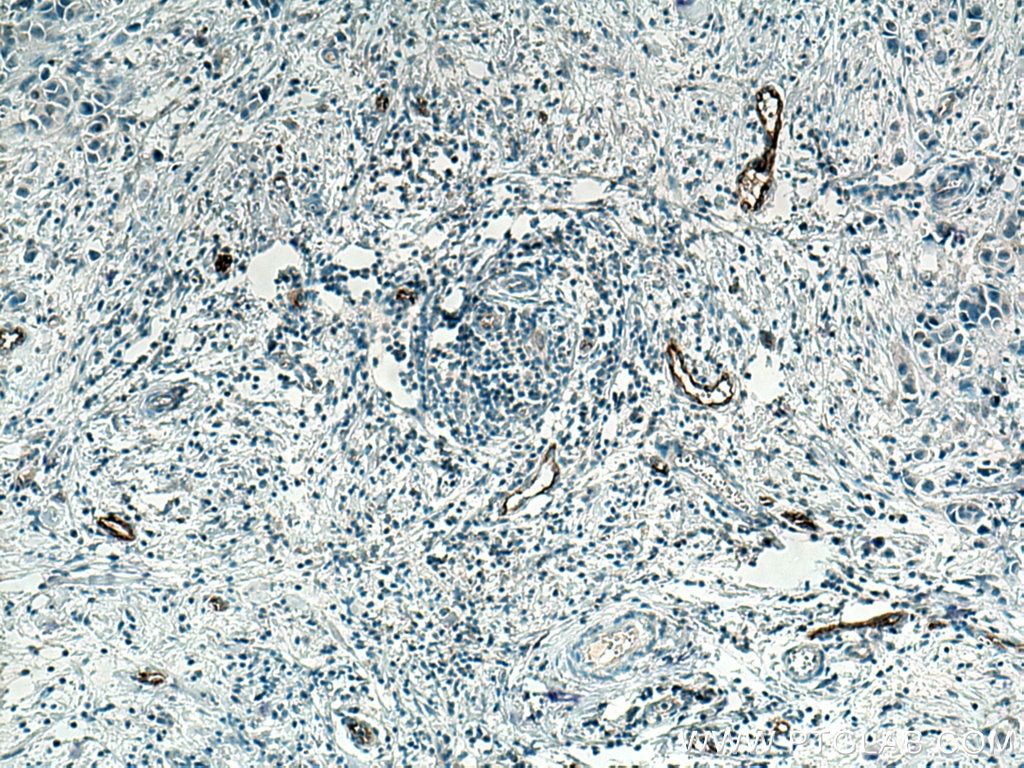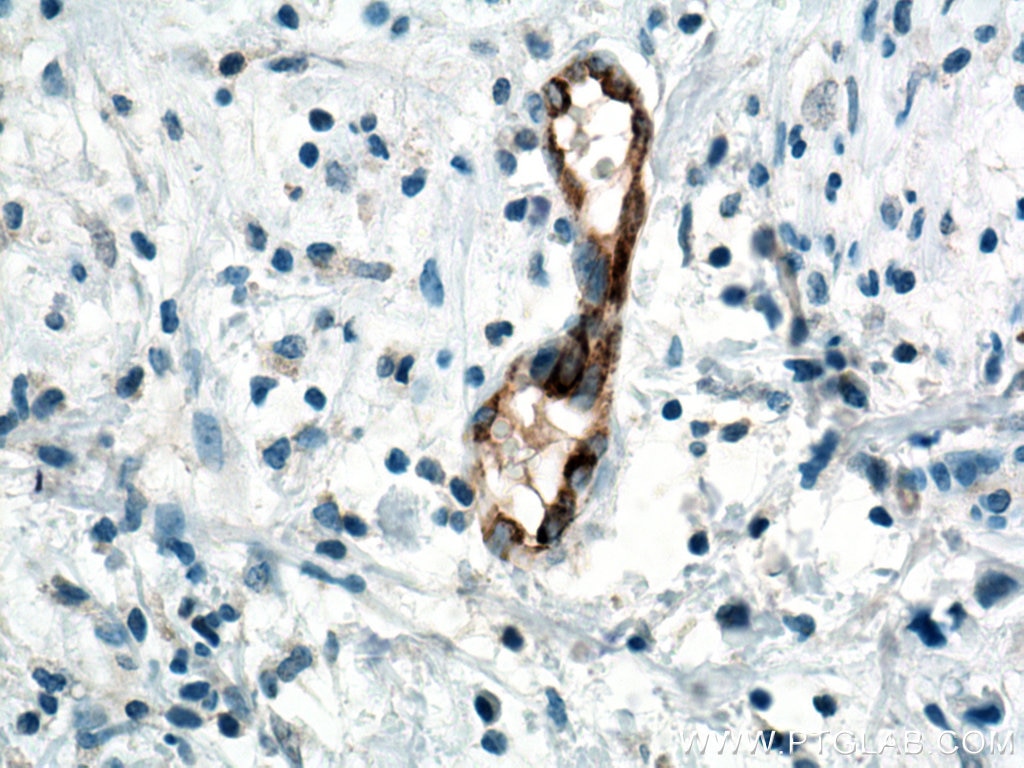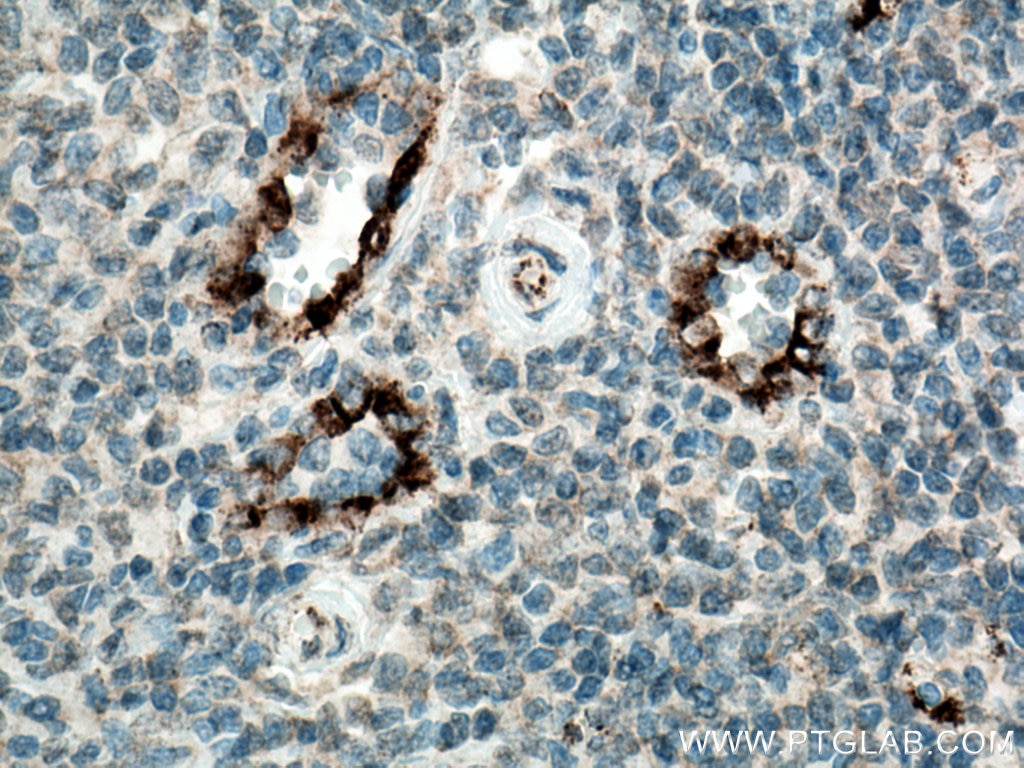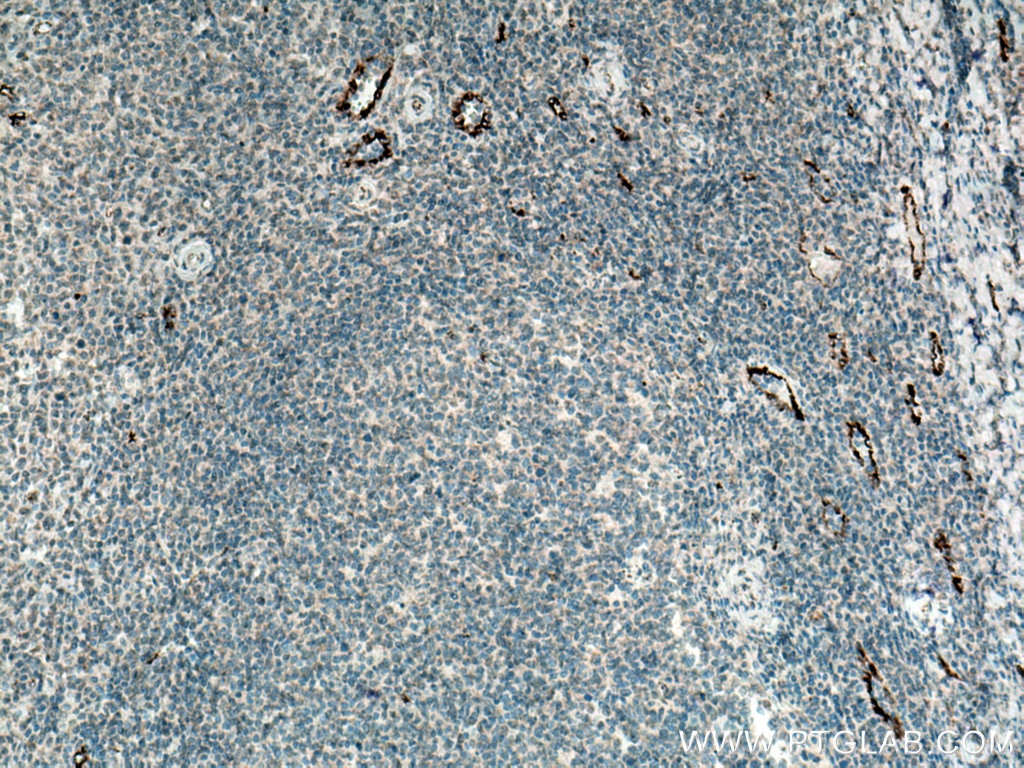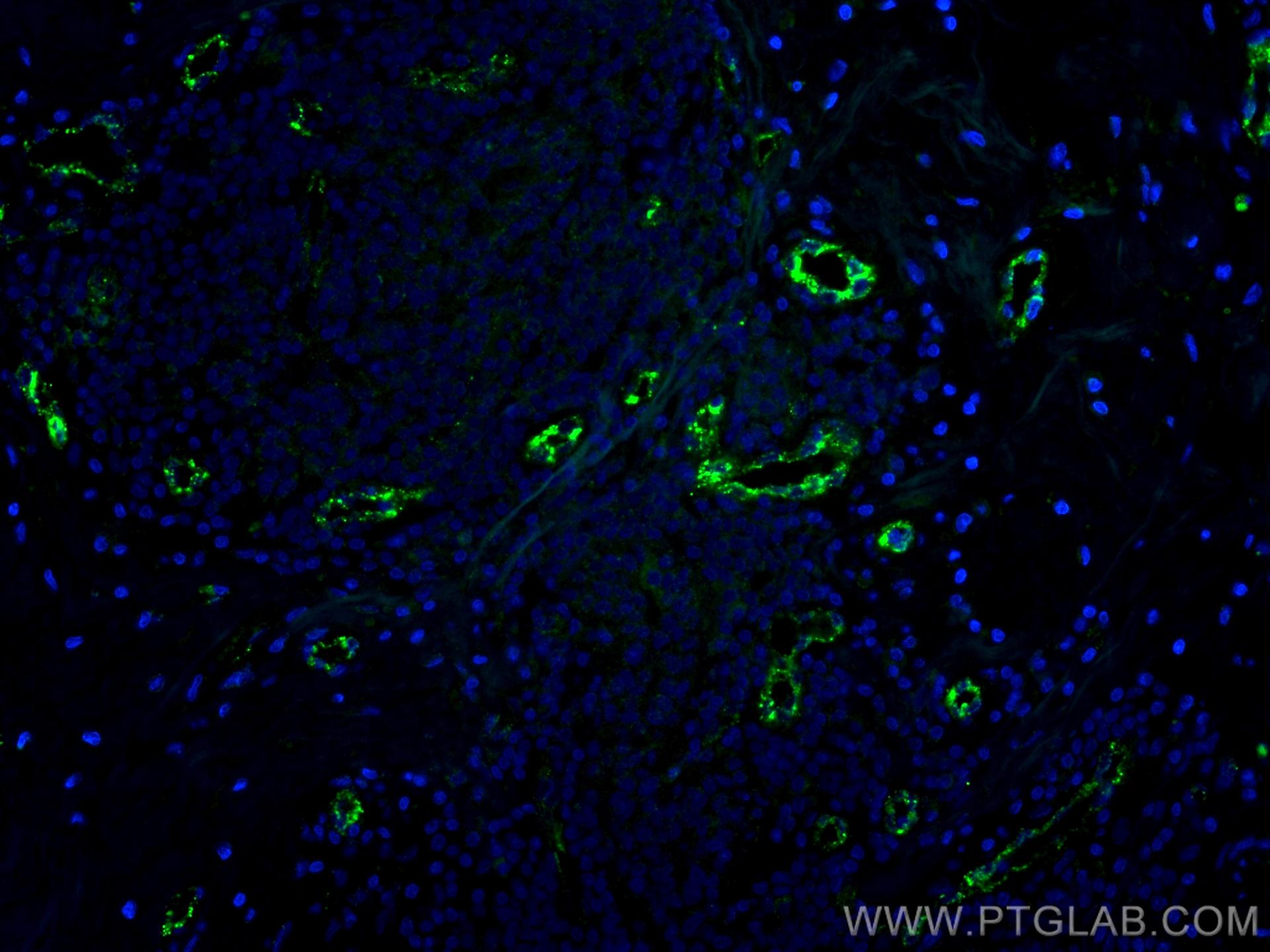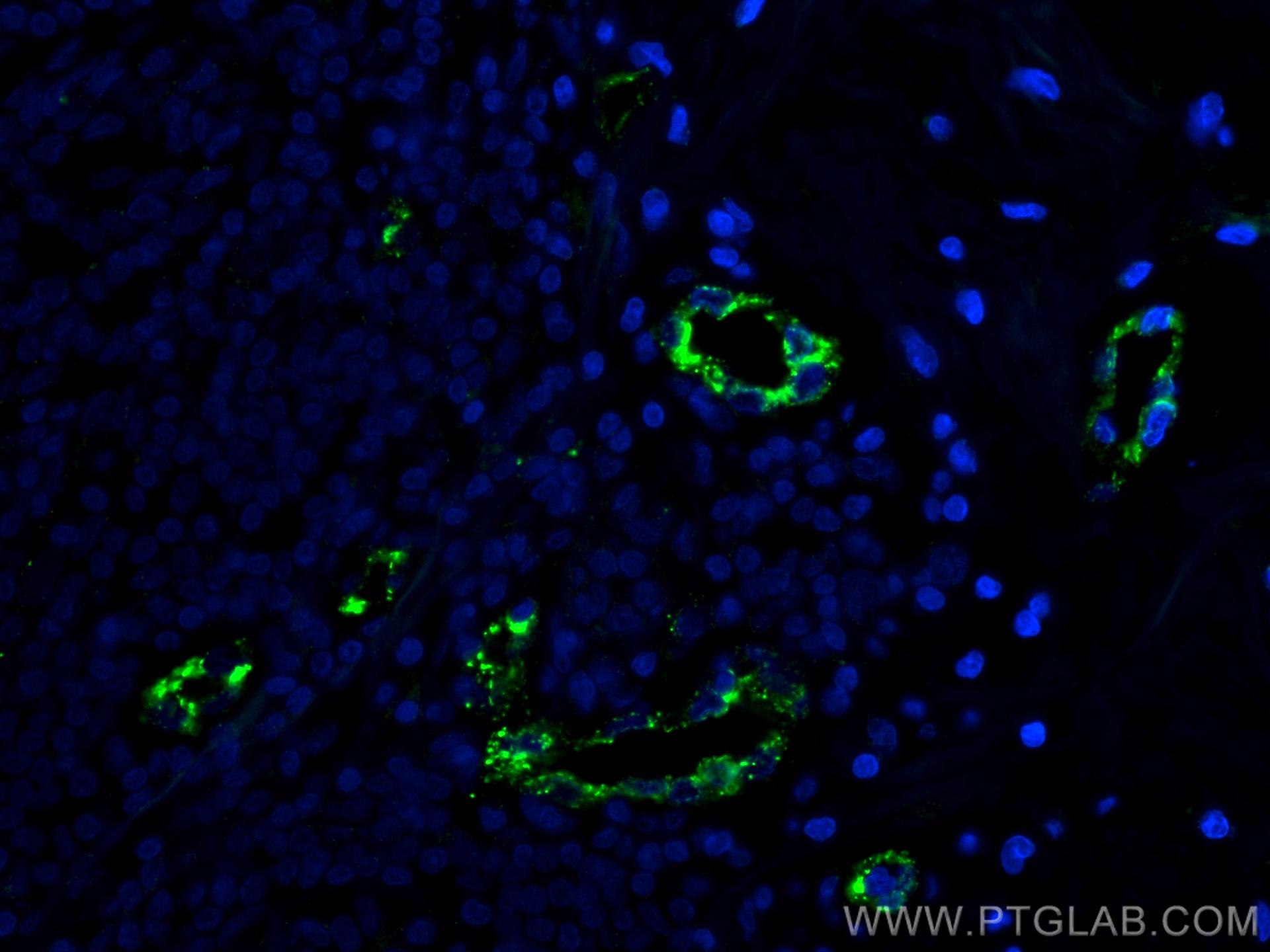VWF Monoklonaler Antikörper
VWF Monoklonal Antikörper für IHC, IF-P, ELISA
Wirt / Isotyp
Maus / IgG1
Getestete Reaktivität
human und mehr (2)
Anwendung
IHC, IF-P, ELISA
Konjugation
Unkonjugiert
CloneNo.
3F9F3
Kat-Nr. : 66682-1-Ig
Synonyme
Geprüfte Anwendungen
| Erfolgreiche Detektion in IHC | humanes Mammakarzinomgewebe, humanes Leberkarzinomgewebe, humanes Prostatakarzinomgewebe, humanes Tonsillitisgewebe Hinweis: Antigendemaskierung mit TE-Puffer pH 9,0 empfohlen. (*) Wahlweise kann die Antigendemaskierung auch mit Citratpuffer pH 6,0 erfolgen. |
| Erfolgreiche Detektion in IF-P | humanes Mammakarzinomgewebe |
Empfohlene Verdünnung
| Anwendung | Verdünnung |
|---|---|
| Immunhistochemie (IHC) | IHC : 1:250-1:1000 |
| Immunfluoreszenz (IF)-P | IF-P : 1:200-1:800 |
| It is recommended that this reagent should be titrated in each testing system to obtain optimal results. | |
| Sample-dependent, check data in validation data gallery | |
Veröffentlichte Anwendungen
| IHC | See 4 publications below |
| IF | See 14 publications below |
Produktinformation
66682-1-Ig bindet in IHC, IF-P, ELISA VWF und zeigt Reaktivität mit human
| Getestete Reaktivität | human |
| In Publikationen genannte Reaktivität | human, Maus, Ratte |
| Wirt / Isotyp | Maus / IgG1 |
| Klonalität | Monoklonal |
| Typ | Antikörper |
| Immunogen | VWF fusion protein Ag25578 |
| Vollständiger Name | von Willebrand factor |
| Gene symbol | VWF |
| Gene ID (NCBI) | 7450 |
| Konjugation | Unkonjugiert |
| Form | Liquid |
| Reinigungsmethode | Protein-G-Reinigung |
| Lagerungspuffer | PBS with 0.02% sodium azide and 50% glycerol |
| Lagerungsbedingungen | Bei -20°C lagern. Nach dem Versand ein Jahr lang stabil Aliquotieren ist bei -20oC Lagerung nicht notwendig. 20ul Größen enthalten 0,1% BSA. |
Hintergrundinformationen
Von Willebrand factor (VWF) is a large multimeric glycoprotein found in blood plasma involved in hemostasis following vascular injury. Due to the multimeric nature of VWF, it can range in size from 500 to 20,000 kDa due to the differences in the number of subunits comprising the protein. Each subunit is approximately 250 kDa (PMID: 9759493). The biosynthesis of VWF in vivo is limited to endothelial cells (PMID: 4209883) and megakaryocytes (PMID: 2413071). VWF synthesized in endothelial cells is either released directly into the plasma via 27186a secretory pathway, or tubulized and stored in organelles unique to this cell type called Weibel-Palade bodies (PMID: 16459301). Whereas VWF synthesized in megakaryocytes is stored in the alpha granules of platelets (PMID: 2046403). The primary function of VWF is as an adhesive plasma glycoprotein, particularly factor VIII; an essential blood-clotting protein (PMID: 6982084). VWF is also important in platelet adhesion to wound sites by binding specifically to type I and type III collagen (PMID: 11098050), with larger VWF multimers being most effective (PMID: 24448155).
Protokolle
| PRODUKTSPEZIFISCHE PROTOKOLLE | |
|---|---|
| IHC protocol for VWF antibody 66682-1-Ig | Protokoll herunterladenl |
| IF protocol for VWF antibody 66682-1-Ig | Protokoll herunterladen |
| STANDARD-PROTOKOLLE | |
|---|---|
| Klicken Sie hier, um unsere Standardprotokolle anzuzeigen |
Publikationen
| Species | Application | Title |
|---|---|---|
J Cell Mol Med Impact of chronic intermittent hypoxia on the long non-coding RNA and mRNA expression profiles in myocardial infarction. | ||
Int J Stem Cells Integrin α4 Positive Subpopulation in Adipose Derived Stem Cells Effectively Reduces Infarct Size through Enhanced Engraftment into Myocardial Infarction | ||
Exp Ther Med Biological activity of a vascular endothelial cell-hydroxyapatite orbital implant complex: An experimental study. | ||
Cell Death Dis Association of N6-methyladenine DNA with plaque progression in atherosclerosis via myocardial infarction-associated transcripts. | ||
Inflammation Low-Shear Stress Promotes Atherosclerosis via Inducing Endothelial Cell Pyroptosis Mediated by IKKε/STAT1/NLRP3 Pathway | ||
Int J Biol Sci Metallothionein 3 Potentiates Pulmonary Artery Smooth Muscle Cell Proliferation by Promoting Zinc-MTF1-ATG5 Axis-mediated Autophagosome Formation |
Rezensionen
The reviews below have been submitted by verified Proteintech customers who received an incentive for providing their feedback.
FH Kenzo (Verified Customer) (01-05-2024) | This monoclonal antibody worked well for immunohistochemistry on human heart sections to stain blood vessels.
|
